Chemical Plants Had Swallowed Up Villages Affected by Fujian Spill
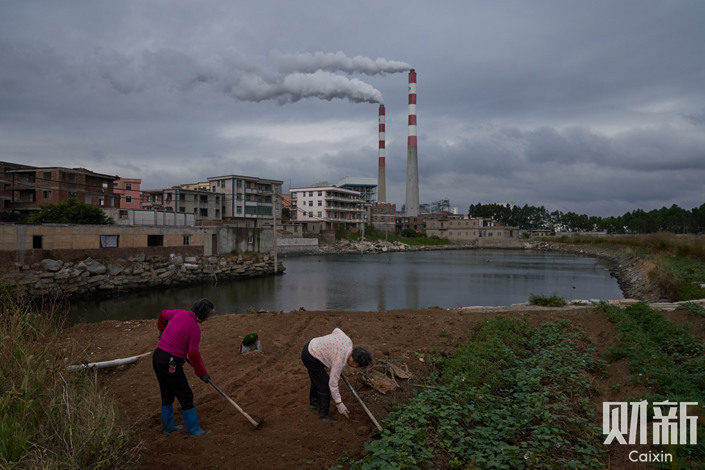
To locals who farm and catch fish for a living, the Nov. 4 leak that dumped nearly 7 metric tons of petrochemicals into a harbor in Quanzhou, Fujian province, was inevitable.
The villages of Quangang district, where the spill happened, have depended on the sea for generations. But they have faced increasing encroachment by the area’s growing petrochemical industry in recent decades.
Fujian United Petrochemical Co. Ltd. opened up Quangang’s first plant in 1989. Since then, millions of tons of refinery capacity have been installed in the area, along with transportation terminals and dozens of storage tanks.
In Shangxi village, some homes are only 100 yards away from petrochemical tanks. A liquefied gas pipe belonging to Huaxing Petrochemical Co. Ltd. runs through the center of the village. Luntou village used to sit to the north of Shangxi, sandwiched between China International United Petroleum & Chemicals Co. Ltd. and Quanzhou Thermal Power. Residents endured serious air pollution until 2012, when Luntou was demolished and its inhabitants relocated.
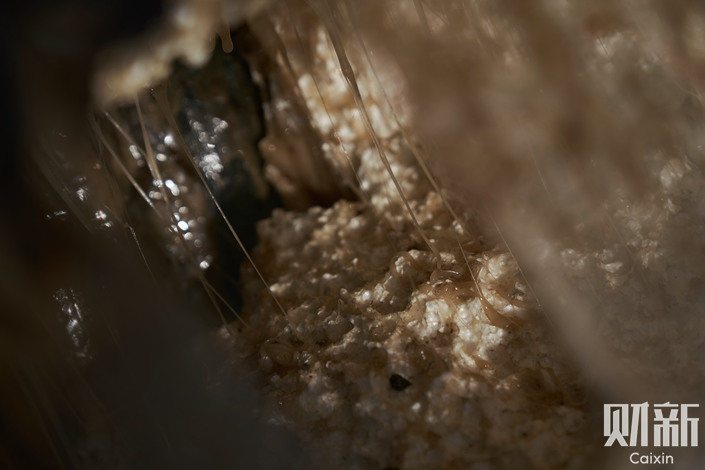 |
The C9 hydrocarbons leaked on Nov. 4 corroded more than half of the plastic foam on villagers’ rafts, which rely on this foam for buoyancy. Photo: Liang Yingfei/Caixin |
 |
Xiacuo village resident Xiao Tianfu (not his real name) was still experiencing throat pain and numbness on his scalp eight days after the leak. Photo: Liang Yingfei/Caixin |
Transport vessels frequently leak small amounts of oil on their way to and from the petrochemical terminal, villagers said after the leak on Nov. 4. Xiao Guangming (not his real name), a resident of Xiaocuo village, said he had observed the survival rate for farmed fish falling from around 70% to less than 10% over the past two years.
Nevertheless, fish farmers in the area had still been able to profit from high fish prices — until the leak killed much of their stock and made the surviving fish unsellable.
Quangang’s agriculture authority issued a warning on Nov. 5 suspending sales and use of aquaculture products from the water near Xiaocuo. Villagers have stopped fishing in the area and have also stopped feeding the fish that survived the initial effects of the spill, Caixin learned.
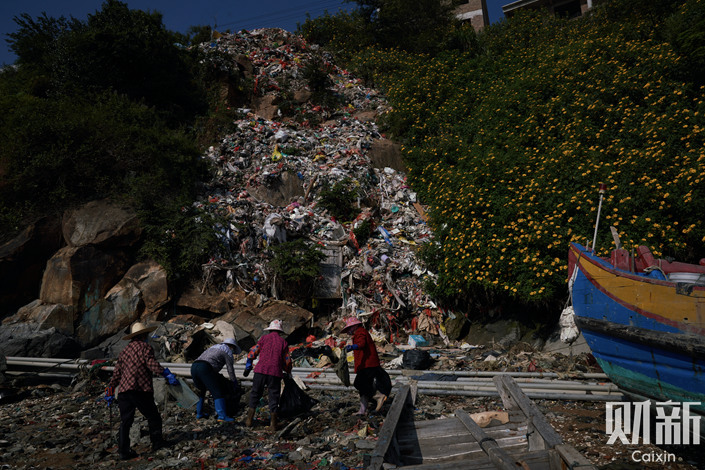 |
Volunteers clean up contaminated waste in Xiaocuo village on Nov. 11. Many participants were elderly residents of the village whose fish farms and fishing equipment had been destroyed by the spill. Photo: Liang Yingfei/Caixin |
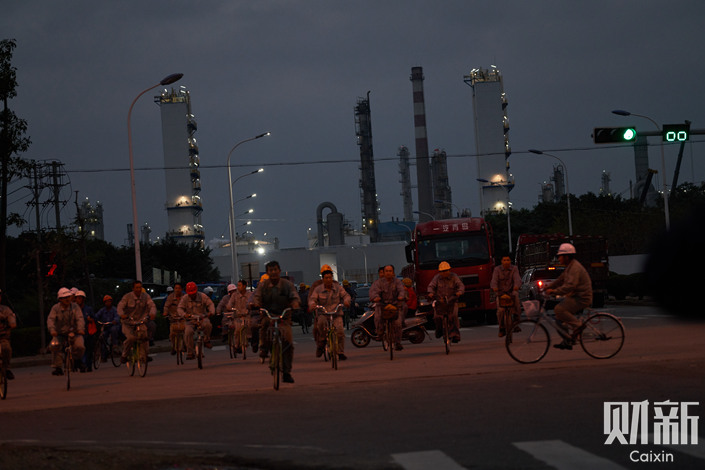 |
Maintenance staff ride bicycles home after a day of work at the Fujian United Petrochemical factory, Quangang’s largest. Photo: Liang Yingfei/Caixin |
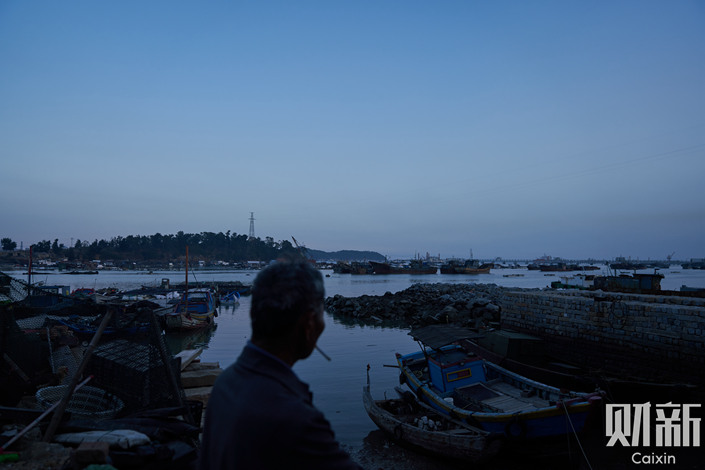 |
A fisherman from Xiacuo village gazes at the sea. Photo: Liang Yingfei/Caixin |
Relocation seems to be the only remaining option for Quangang’s communities. In May 2017, work began on relocating more than 13,000 homes across 17 villages in the district. A year later, most of the villages that aren’t directly by the sea are now deserted. But the households on the waterfront are still fighting to stay.
Xiao Guangming was still in Xiaocuo tending to his fish farm nine days after the leak, partly because he was unwilling to move in with his children in the city as he feared becoming a burden for them. Luntou residents, who were relocated in 2012, are still waiting to receive their new homes, Caixin learned.
Contact reporter Teng Jing Xuan (jingxuanteng@caixin.com)
- 1Cover Story: China Carves Out a Narrow Path for Offshore Asset Tokenization
- 2Drownings Shake Chinese Enthusiasm for Travel to Russia
- 3Over Half of China’s Provinces Cut Revenue Targets
- 4Li Ka-Shing’s Port Empire Hit by Forced Takeover Amid Panama Legal Dispute
- 5In Depth: China’s Mutual Fund Industry Faces Overhaul After a Banner 2025
- 1Power To The People: Pintec Serves A Booming Consumer Class
- 2Largest hotel group in Europe accepts UnionPay
- 3UnionPay mobile QuickPass debuts in Hong Kong
- 4UnionPay International launches premium catering privilege U Dining Collection
- 5UnionPay International’s U Plan has covered over 1600 stores overseas





